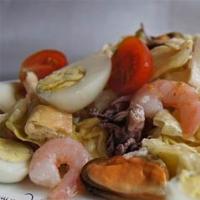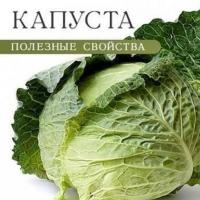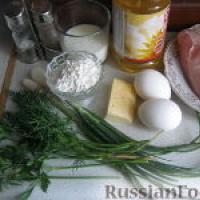Moiseev D., priest. Does a dog interfere with grace? New training course “Moral foundations of family life”
Every Orthodox Christian knows about the existence of Sacred Tradition in our Church. Church tradition also occupies its due place in it. But, unfortunately, almost each of us has had to deal with the so-called “near-church” tradition, which has absolutely nothing to do with the Orthodox Church, but, nevertheless, lives near it. Alas, not all believers have enough knowledge to distinguish real church teaching from pseudo-church teaching, and, instead of decisively rejecting the latter, they unwittingly become its spreaders.
Among such “near-church” legends is the opinion that it is inadmissible to have dogs in apartments and other premises where there are icons and other shrines. They say that it is supposedly impossible to consecrate those apartments where dogs live, and if a dog enters a consecrated room, then it must be re-consecrated. A completely reasonable question arises: what is the dog’s fault, and how can it interfere with the grace of God? The usual answer is that since in the Holy Scriptures of the Old Testament a dog is called an unclean animal, then, therefore, it defiles a shrine with its presence.
If for people who hold this opinion, the Lord’s words spoken to the Apostle Peter are not enough, namely: “What God has cleansed, do not consider unclean” (Acts 10:9-15), the resolution of the Apostolic Council, which abolished the need for Christians to observe the Old Testament law ( Acts 15:24-29) and other testimonies of the New Testament, then it would be useful for them to know what the Holy Fathers say about the reason for the division in the Old Testament of animals into clean and unclean, and also what exactly this uncleanness consists of. The great Byzantine theologian of the 9th century, Saint Photius, Patriarch of Constantinople (February 6, Old Style) writes the following about this: “Many things are very good by nature, but for those who take advantage they become great evil, not because of their own nature, but because of depravity using... The pure began to be separated from the unclean not from the beginning of the universe, but received this distinction due to certain circumstances. For since the Egyptians, who had the Israelite tribe in their service, gave divine honors to many animals and used them badly, which were very good, Moses , so that the people of Israel would not be carried away into this nasty use and would not attribute divine worship to the dumb, in the legislation they rightly called them unclean - not because uncleanness was inherent in them from creation, in no case, or uncleanness was in their nature, but since the Egyptian tribe did not use them purely, but very badly and wickedly.And if Moses classified something of the things that were deified by the Egyptians as pure, like the ox and the goat, then by this he did not do anything inconsistent with the present reasoning or with his own goals. Having called some of the things they idolized an abomination, and consigned others to slaughter, bloodshed, and murder, he equally protected the Israelites from serving them and the harm arising from this - after all, neither vile, nor slaughtered and subject to slaughter could be considered a god by those who treated him that way.
So, God’s peacemaking has made all creatures very good and the nature of everything is the best. The unreasonable and lawless human use, having desecrated much of what was created, forced something to be considered and called unclean, and something, although it escaped the name unclean, gave the God-seer reason to provide another way to stop their desecration, in order to remove them from thoughts in one way or another Israelites polytheism and achieve impeccability. After all, both the name of the Unclean and the use that gives the sacrificial [meat] to the belly does not allow one to think or even simply imagine something divine or honorable in them.
If someone says: “Then why was Noah, when the law of Moses had not yet been given, commanded in Scripture to separate the clean from the unclean and bring them into the ark? (cf. Gen 7:2)?", let him know that there is no contradiction. For... if animals are named not by the characteristics by which they were recognized then, but by those that became known later, then nothing refutes the above reasoning. After all, the book of Genesis was written not by Noah, who lived before the law, but by Moses, who laid down the law about the clean and the unclean. If what was later included in the law was foreshadowed by Noah, nothing surprising, because even when the general collapse had not yet occurred, he, having received knowledge about it, did not doubt. Then how did he, having heard about the distinction between clean and unclean, decide to separate them? What has just been said also answers this: the one who learned about the universal collapse before it came, and received the grace from God to preserve the seed of the human race, did not in any way delay in receiving from above the recognition of pure and unclean, although the use of these names had not yet occurred in custom" (St. Photius. Amphilochia. Alpha and Omega, No. 3 (14), 1997, pp. 81-82).
Thus, the Holy Father’s view on the problem of unclean animals is quite obvious: it is not a matter of the nature of the creature, by nature, by nature, all animals are very good. Moses called some animals unclean, trying to protect his people from worshiping them. In our time (and even during the earthly life of Christ) such a threat does not exist. Therefore, “discrimination” against dogs by Orthodox Christians has no basis. It must be said that in the canonical rules of the Russian Church there is a decree prohibiting the introduction of dogs into the temple, since the presence of a dog in it is not appropriate due to its inherent characteristics (smell, restless behavior that violates the reverent order and silence of the temple, etc.) . However, this prohibition applies only to the temple and is not at all motivated by the fact that the dog defiles the shrine and prevents the grace of God from being in the temple. Accordingly, the presence of a dog in the house cannot in any way interfere with grace. It is not the dog that drives this grace away from us, but our sinful life, from which it is much more difficult to free ourselves than from a dog. Therefore, the presence of a dog in it does not pose any obstacle to the consecration of an apartment, although from the point of view of common sense, keeping a dog in an apartment is not always justified. But this is a question of expediency, and not at all of church discipline.
And let us turn more often to the patristic heritage, to this truly inexhaustible treasury of spiritual wisdom, because only there can we find the correct answer to certain questions that life poses to us.
The page was generated in 0.01 seconds!
Educational and methodological complex “Moral foundations of family life. 10-11 grades.” intended for a wide range of modern youth. It is secular in nature. The choice of the senior level of the school to teach a new family course is not accidental, since graduates are on the threshold of adulthood, creating their own family, giving birth and raising children.
A special feature of the educational and methodological complex “Moral Foundations of Family Life” is that it accumulates knowledge on the family from various scientific fields: cultural studies, psychology, sociology, medicine and theology.
Currently, the training course “Moral Foundations of Family Life” is being tested at experimental sites across the country. Namely: in Yekaterinburg and the Sverdlovsk region; in Kaluga and Kaluga region; in Kaliningrad and the Kaliningrad region; in Kostroma and the Kostroma region; in Kurgan, Orenburg and Chelyabinsk regions; in St. Petersburg, etc.
Awards:
At the 1st International Festival of Social Technologies in Defense of Family Values “FOR LIFE”, held in 2010 in Moscow, the project - educational course “Moral Foundations of Family Life” became a laureate in the “Educational Programs” nomination. A diploma of the International Festival was awarded.
In 2012, the educational and methodological complex “Moral Foundations of Family Life” became the winner of the All-Russian competition in the field of pedagogy, education and work with children and youth under 20 years old “For the moral deed of a teacher” in the category “Best Pedagogical Research of the Year”.
Its authors at the XXI International Christmas Educational Readings were awarded diplomas from the Ministry of Education and Science of the Russian Federation and the St. Nicholas the Wonderworker Charitable Foundation.
Priest Dmitry Moiseev, candidate of biological sciences, priest of the Church of the Nativity in Yekaterinburg. In 2002, the Center for the Protection of Motherhood “Cradle” was created in the Yekaterinburg diocese, of which he became the confessor. Realizing that family values must be taught from school, Fr. Dmitry began to develop a training course “Moral Foundations of Family Life”, intended for high school students in secondary schools.
In 2005, Bishop Vincent blessed nun Nina (Krygina) (in the world - Nadezhda Nikolaevna Krygina), who joined the monastery from the position of professor in the psychology department of Magnitogorsk State University, to join this work. During 18 years of her professional activity at the university, she taught her own special course on “Psychology of Family Life” for full-time and part-time students. In addition, she had experience teaching “Ethics and Psychology of Family Life” in senior classes of secondary schools. She defended her master's thesis on the topic of education of family values in 1993 in Moscow at the Institute of Psychology of Personal Development of the Russian Academy of Education in the dissertation council of Academician V.S. Mukhina, with whom she studied since her student years.
By joining forces, Fr. Dmitry and nun Nina developed a unique educational course for young people, “Moral Foundations of Family Life,” and wrote the first textbooks on family life in Russia for high school students. (Teachers who taught the subject “Ethics and Psychology of Family Life” in the 80s of the twentieth century remember that no textbooks for high school students were developed for that curriculum. Only the Teacher’s Book and the Reader were offered at the teacher’s disposal).
The educational complex “Moral foundations of family life” includes:
Sample program of the course “Moral foundations of family life”;
2 textbooks for high school students (one each for grades 10 and 11);
2 Teaching aids for teachers (one each for grades 10 and 11);
2 Readers for teachers (one each for grades 10 and 11);
Multimedia accompaniment of the educational course for grades 10 and 11.
The logic of presentation of the materials of the course “Moral Foundations of Family Life” was built taking into account the age characteristics of high school students. Psychology has established that at this age there is an active formation of a worldview. High school students are restructuring their attitude towards themselves, towards other people, and towards the world around them. A young man asks himself the question: “Who am I?”, “What are other people and the world around me like?”, “Who am I in this world?”, “What is the meaning of life?” This training course and all its contents were developed in this logic.
This training course begins in the 10th grade with the formulation of the problem - “What is happiness and how to achieve it?”. The question of achieving happiness is relevant for people of all ages, but it is especially acute for young people before entering adulthood. High school students will return to the answer to this question again at the last lesson in 11th grade, summing up everything they have studied over the course of 2 years in the course “Moral Foundations of Family Life.”
IntroductionWhat is happiness and how to achieve it?
Section I. PERSONALITY AND INTERPERSONAL RELATIONS
Chapter I. Who am I?
Topic 1.2. The concept of personality
Topic 1.3. The mystery of age
Topic 1.4. The mystery of gender
Chapter II. Me and Others
Topic 2.1. To be or seem
Topic 2.2. Shame and conscience
Topic 2.3. Friendship and love in human life
Topic 2.4. Masculinity
Topic 2.5. Femininity
Section II. FAMILY AGES
Chapter III. Premarital relations
Topic 3.1. Love and infatuation
Topic 3.2. Test of feelings
Topic 3.3. Premarital period
Topic 3.4. Union of two families
Chapter IV. Wedding. Start of life together
Topic 4.1. The most important day
Topic 4.2. First year of marriage
Chapter V. Young parents
Topic 5.1. Family expecting a child
Topic 5.2. Miracle of life
Topic 5.3. "Thou shalt not kill"
Topic 5.4. Young family with a newborn
Section I. FAMILY AGES
Chapter 1. Features of a mature family
Topic 1.1. Parents and children. The importance of children in family life
Topic 1.2. Lessons from family growing up
Topic 1.3. Family conflicts
Topic 1.4. Marital longevity
SECTION II. I AM FAMILY SOCIETY
Chapter 2. Family is the basis of any society
Topic 2.1. Family types and functions
Topic 2.2. The importance of family for society
Topic 2.3. Family and state. Demographic issues
Topic 2.4. History of family policy in Russia
Chapter 3. Family life arrangement. Personality and family
Topic 3.1. Hierarchy of family relationships. Husband's headship
Topic 3.2. The wife is the keeper of the home
Topic 3.3. The situation of children in the family
Topic 3.4. Elder family members
Chapter 4. Family education
Topic 4.1. Traditions of family, clan, people
Topic 4.2. Nurturing honor and duty in the family
Topic 4.3. Patriotic education in the family
Topic 4.4. Labor education in the family
Topic 4.5. Sex education in the family
SECTION III. WHAT DO I LIVE FOR?
Chapter 5. Religious foundations of the family
Topic 5.1. Faith, trust and fidelity as values of family life
Topic 5.2. Family in religious tradition
Topic 5.3. Holy families. Patron saints of the family
Chapter 6. Family in my life
Topic 6.1. The joy of family life
Topic 6.2. The importance of family in a person’s life and the meaning of life
Topic 6.3. Family happiness - myth or reality?
An important point in creating The educational complex “Moral foundations of family life” is that the experts of these methodological developments are such well-known scientists and permanent members of the Expert Federal Council as
- Slobodchikov Viktor Ivanovich, head of the department of psychological anthropology of the Institute of Psychological and Pedagogical Problems of Childhood of the Russian Academy of Education, professor, corresponding member. RAO, Doctor of Psychology.
- Filippov Boris Alekseevich, professor of the department of systematic theology and patrolology of the theological faculty of PSTGU, candidate of historical sciences.
Both reviewers gave positive ratings and noted that not only high school students, but also adults, could benefit from the tutorials in this course.
Please note that this course is aimed at fostering family values. But in order to form these values, it is not enough to achieve only an intellectual perception of the proposed material. The teacher needs to form a certain mental attitude in students, to help their hearts respond and their souls open to the perception of vital values. Therefore, the authors have developed a large number of audio and video materials to help the teacher. For example, 76 audio and video materials have been developed for grade 10 alone. The vast majority of them are intended for demonstration in class. Others (these include, first of all, audio materials) are designed to provide significant assistance in preparing the teacher for lessons in this course.
Born on October 24, 1970 in Chelyabinsk. Father - Moiseev Alexander Pavlovich - journalist, writer, local historian; in the Soviet years - executive secretary of the newspaper "Evening Chelyabinsk"; later - editor of the Rifey and Abris publishing houses; stood at the origins of the revival of the All-Russian Society of Local Lore. Mother - Moiseeva Tatyana Anatolyevna - librarian, teacher at the children's club.
He graduated from the Faculty of Biology of the Ural State University (Ekaterinburg) in 1992, and in 1995 he completed his postgraduate studies in biology. Defended his PhD thesis in 2001.
In 1989-1991 participated in the pre-design feasibility study and organization of the Taganay and Zyuratkul national parks, and in 1991-1992, the Arkaim landscape and historical reserve (Chelyabinsk region).
From 1992 to 1999 - employee of the Chelyabinsk State University, in the mid-1990s - of the Regional Museum of Local Lore (Ekaterinburg) (participated in the creation of the Museum of Horticulture of the Urals), in 2000 - employee of the Botanical Garden of the Ural Branch of the Russian Academy Sciences (Ekaterinburg).
In 1998-1999, he took part in the creation of the Faculty of Ecology at Chelyabinsk State University and the Botanical Garden at Chelyabinsk State University.
Secular profession - biologist; researcher of steppe and alpine vegetation of the Urals; participant in international projects for the study of alpine vegetation GLORIA and INTAS (including co-authored publications in Science (04/20/2012) and Nature Climate Change 2, 111-115 (2012)).
He received his spiritual education at the Orthodox St. Tikhon's Theological Institute, where he graduated from the missionary faculty in 1999.
He married Daria Borisovna Bokova on January 31, 2001 in the Church of the Nativity in Uralmash.
Since 2002 - teacher of Missionary Courses, Higher Missionary Courses (vice-rector for scientific affairs of which he was in 2009-2010). In 2009-2011 he took part in the creation of the Missionary Institute at the Novo-Tikhvin Convent (Ekaterinburg).
Until December 2013 - head of the Center for the Protection of Motherhood "Cradle" under the Department of Social Ministry of the Ekaterinburg Diocese (established in 2002).
Member of the Working Group of the Patriarchal Council on Family Issues and Protection of Motherhood, the Coordination Center for the Protection of Life and Family Values at the Synodal Department of Church Charity and Social Service of the Russian Orthodox Church.
Together with nun Nina (Krygina) - winner in the All-Russian competition of pedagogy of education and work with children and youth under 20 years old “For the moral feat of a teacher” (2012) (in the category “Best pedagogical research of the year”). He has certificates from the Ministry of Education and Science of the Russian Federation, the Synodal Department of Religious Education and Catechesis, the Synodal Department for Church Charity and Social Service of the Russian Orthodox Church.
Developer of a new academic discipline “Moral Foundations of Family Life” and a new scientific direction - “Family Anthropology”. Together with nun Nina (Krygina), he created a program and educational and methodological complexes for the 10th and 11th grades of a comprehensive school. The complex includes 7 printed publications and 5 multimedia discs, among which are the first family textbooks in Russia. In 2012, teaching aids received the stamp of the Department of Religious Education and Catechesis of the Russian Orthodox Church.
In collaboration with nun Nina (Krygina), T.A. Poletaeva and Archpriest Alexey Kurenkov, the creator of programs and educational and methodological complexes on the subject “Fundamentals of Orthodox Culture” for students and teachers of the 10th and 11th grades of secondary schools (2 printed publications and 2 multimedia discs). In 2012, the textbook for grade 10 received the stamp of the Department of Religious Education and Catechesis of the Russian Orthodox Church.
Since the spring of 2009, member of the Interregional Group for the creation of programs and educational complexes in the subjects “Fundamentals of Orthodox Culture. 1-11 grades”, “Culture of Russia. 1-11 grades”, “Moral foundations of family life. 10-11 grades”. Since the fall of 2013, he has been a member of the Interregional Network Laboratory of educational institutions implementing innovative projects in the field of spiritual and moral development and education at the Institute of Psychological and Pedagogical Problems of Childhood of the Russian Academy of Education (Moscow).
Until December 2013 - caring priest of the temple in honor of the holy martyrs Vera, Nadezhda, Lyubov, their mother Sophia at the 14th city hospital of Yekaterinburg, spiritual director of the Society of Orthodox Teachers of the Ordzhonikidze district of Yekaterinburg, teacher of the department of theology of the Missionary Institute at the Novo-Tikhvin Women's College monastery (Ekaterinburg), member of the editorial board of the magazine "Enlightener", spiritual director of the Youth Club at the Church of the Nativity in Uralmash, ministering priest of the Sunday school at the Church of the Nativity in Uralmash, non-state educational institution of the school "Source", the collective of the Academic Ural Folk Choir. Organizer of 11 multi-day pilgrimage trips across Russia and other Orthodox countries. Co-author on the Orthodox radio “Resurrection” of the series of programs “Orthodoxy and Creativity”, “Peaks of Russian Culture”. Until December 2013 - priest of the Church of the Nativity of Christ in Uralmash - Ekaterinburg Diocese of the Russian Orthodox Church. Since January 2014 - priest of the Church of the Iveron Icon of the Mother of God - Alatyr diocese of the Russian Orthodox Church.
The book “Fairytale Island”, written in collaboration with his father - Moiseev A.P. and uncle - Moiseev V.P. awarded the South Ural Literary Prize 2013 in the category “Literary Local History and Journalism.”
The words of Jesus Christ that “it is easier for a camel to go through the eye of a needle than for a rich man to enter the Kingdom of God” sound like a sentence that has been passed and cannot be appealed. It would seem, what else is there to talk about? And yet, not everything is so simple.
Priest Dmitry MOISEEV born in 1973 in Kaluga. Graduate of the Moscow State Technical University named after Bauman with a degree in engineer-technologist of materials and solid-state electronics components. Came to faith in the early 90s. In 1999 he graduated from the Kaluga Theological Seminary, and then from the Moscow Theological Academy in absentia. Now he is the rector of the Obninsk Church of the Holy Equal-to-the-Apostles Princes Vladimir and Olga. Teaches dogmatic theology at Kaluga Theological Seminary.
In the lives of many saints we read that they were born noble and rich. And in the popular church book about preparing for confession, nothing is said about such a mortal (or not mortal?) sin as wealth. And in the Gospel, when Christ takes examples from the lives of traders for His parables, He not only does not condemn them, but seems to take it for granted that one must trade profitably. Thus, in the parable of the talents, the master says to the servant who buried his talent in the ground: “You should have given my silver to the merchants, and when I came I would have received mine with a profit.” How can we understand all this?
Before the coming of Jesus Christ to earth, the Jewish people not only did not consider wealth a vice, but, on the contrary, it was, as it were, direct evidence of God’s blessing to man. So to speak, wealth was perceived as a certificate with a stamp - “God is in favor!” Just like having many children. Wealthy people with many children were considered righteous. Those to whom the Lord did not give either abundant offspring or prosperity immediately aroused suspicion that they were sinners punished for their sins. Why? Yes, because, concluding the Old Testament with the people of Israel, the Lord promised them abundance and prosperity for keeping the commandments.
By the way, modern Protestants have the same Old Testament attitude towards wealth. They also consider visible material well-being as evidence of God's love for man. And often their sermon is based on the principle: I was poor, sick and unhappy, then I believed, and Jesus gave me money, health and happiness!
That is why the disciples of Christ, brought up in such ideas about wealth, as the New Testament narrates, “were greatly amazed” when they heard that it was difficult for a rich man to enter the Kingdom of Heaven. Their confusion is understandable: who then can be saved, if even the rich it is so difficult?! Jesus answered: “With men this is impossible, but with God all things are possible.” But this is already a transition from a completely different plane. But what about wealth? Is it destruction for man or God's blessing?
Of course, a person’s salvation does not depend on wealth. And from addiction to it. From an unquenchable thirst to have as much money, things, houses, cars, jewelry as possible. From that thirst that gradually begins to dominate a person, overshadowing everything in this life - right up to his family and friends. One successful entrepreneur told a very instructive story about how he built his house. He planned an underground garage, Russian and Finnish baths, a swimming pool, a gym, three residential floors... He tried to think through everything to the smallest detail for the maximum comfort of his family. But while the walls were being built, the family fell apart. The wife left, the children became strangers. And no one needed the house. Now he's selling it. What does this mean? About the fact that first you need to build something in your soul and in the souls of your loved ones, and walls and everything else will follow. And an incorrect hierarchy of values is always destructive. “Without Me you cannot do anything,” said the Lord. Without God, sooner or later no stone will be left unturned from any human enterprise. Destruction will inevitably occur - either visibly, materially, or in the human soul, which is no less, and even more terrible. It is no coincidence that success in business is often accompanied by devastation of the soul, loss of the meaning of life, and despair.
But even the poor and even the beggar can suffer from an immoderate addiction to property. Passions, as Abba Dorotheos wrote, live in a person regardless of external circumstances. It's all about the inner spiritual world. You can give away your property, enter a monastery and have such a passion for your only last shirt or some insignificant thing that your heart becomes so attached to it, just as a rich man does not become attached to his wealth.
Poverty in itself is not at all a passport to the Kingdom of Heaven. You can accept your poverty with humility, or you can become embittered at the whole world and rejoice when your neighbor’s cow dies. Such poverty has nothing to do with Christianity. It happens that the poor themselves are to blame for their poverty: they are too relaxed, too irresponsible, too lazy. They do not take advantage of all opportunities to change their condition. And this is also a sin. The Apostle Paul says: if anyone does not work, let him not eat. The pre-revolutionary experience of Russia shows who really always needed help - most often, these were widows left without breadwinners with a large number of children. They really couldn’t earn money themselves. And not a healthy man who lies on the sofa and doesn’t want to lift a finger - one job is too dirty for him, another doesn’t pay enough...
It's all about the internal state of a person. The New Testament takes the relationship between man and God to a completely different level. He gives a person unprecedented freedom, calling in return for perfection. “Be perfect, just as your Father in heaven is perfect!” But why does the Son of Man warn the rich, and not the poor, about difficulties? The fact is that wealth is a huge temptation for human nature, damaged by the Fall, which rarely can anyone resist. After all, money, in addition to convenience and comfort, gives a person respect, nobility, fame, power over other people and much more - everything that pleases pride. And pride, because of which the bright Angel Dennitsa fell away from God and became the devil, is a subtle poison that penetrates the soul and poisons it.
So, it’s not all about wealth and poverty, but about ourselves. What are our values in life? Do we fight our passions, pull out these weeds, or, on the contrary, water and fertilize them so that they bloom in lush colors, and we no longer see the sun behind them. Christ said: seek first the Kingdom of God, and everything else will be added to you. It is only important to understand that the words of the Lord are not an allegory, and are fulfilled literally.
 Canned fish soup sardines with rice
Canned fish soup sardines with rice Stewed cabbage with turkey in a slow cooker How to stew cabbage in a frying pan with turkey
Stewed cabbage with turkey in a slow cooker How to stew cabbage in a frying pan with turkey Simple salad with mussels, shrimp and tomatoes with mayonnaise
Simple salad with mussels, shrimp and tomatoes with mayonnaise Vegetable soup: recipes with photos
Vegetable soup: recipes with photos Stewed cabbage - the best recipes
Stewed cabbage - the best recipes Chicken pancakes with cheese on kefir
Chicken pancakes with cheese on kefir Rice porridge - the best recipes
Rice porridge - the best recipes